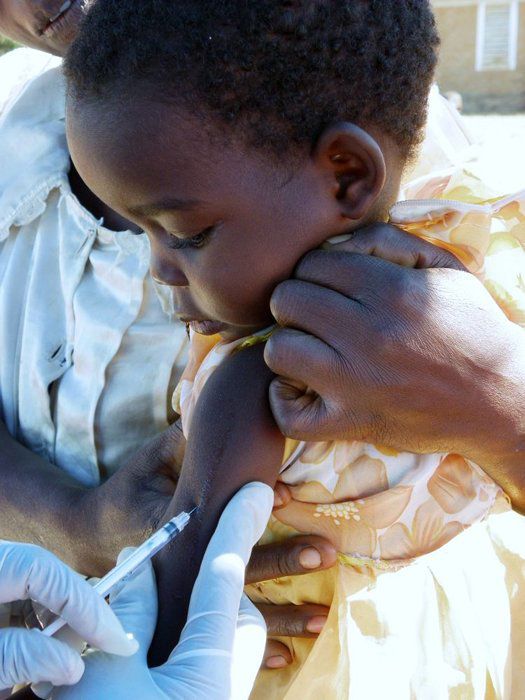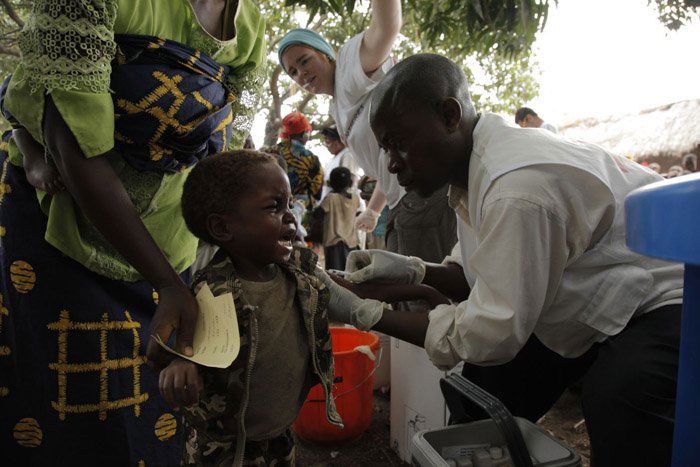For the past few decades, measles has been in retreat, prompting some to campaign for its global elimination. But events in 2010 showed the ambitious slogans have come too early. An often lacklustre response to a surge of outbreaks in sub-Saharan Africa and insufficient funding means the disease is far from being under control. In 2008, more than 160,000 people died of measles, most of whom were children under five years.
Measles is a highly-contagious disease that can emerge as soon as the vaccination coverage in a population drops below a certain level. Children in poor countries are at particular risk of complications and death. For years now, MSF has been at the forefront of responses, working with health ministries in many countries.
Outbreaks in 2010 struck many sub-Saharan African countries, including Chad, Malawi, Zimbabwe, South Africa, Nigeria and the Democratic Republic of Congo. What’s particularly surprising about the recent resurgence of measles is that epidemics are occurring not just in war-torn countries where health systems are weak and unable to cope, but also in stable countries where vaccination programmes have been in place for a number of years already. This shows that something is wrong with the current effort to fight measles.
To make sure the progress achieved in recent decades is not lost, the disease must return to the spotlight. Controlling measles epidemics needs political and financial support for both routine services and outbreak responses. But these have been declining at a time when the price tag of US$1 to vaccinate a child makes measles control one of the most cost-effective health interventions available.
Dr. Tido VON SCHOEN-ANGERER, Executive Director, MSF’s Campaign for Access to Essential Medicines “It’s frustrating to see measles outbreaks that could and should have been avoided. Measles and improvement of basic vaccination must get back into the political spotlight.”
Outbreaks in 2010 struck many sub-Saharan African countries, including Chad, Malawi, Zimbabwe, South Africa, Nigeria and the Democratic Republic of Congo. What’s particularly surprising about the recent resurgence of measles is that epidemics are occurring not just in war-torn countries where health systems are weak and unable to cope, but also in stable countries where vaccination programmes have been in place for a number of years already. This shows that something is wrong with the current effort to fight measles.
To make sure the progress achieved in recent decades is not lost, the disease must return to the spotlight. Controlling measles epidemics needs political and financial support for both routine services and outbreak responses. But these have been declining at a time when the price tag of US$1 to vaccinate a child makes measles control one of the most cost-effective health interventions available.
Dr. Tido VON SCHOEN-ANGERER, Executive Director, MSF’s Campaign for Access to Essential Medicines “It’s frustrating to see measles outbreaks that could and should have been avoided. Measles and improvement of basic vaccination must get back into the political spotlight.”



